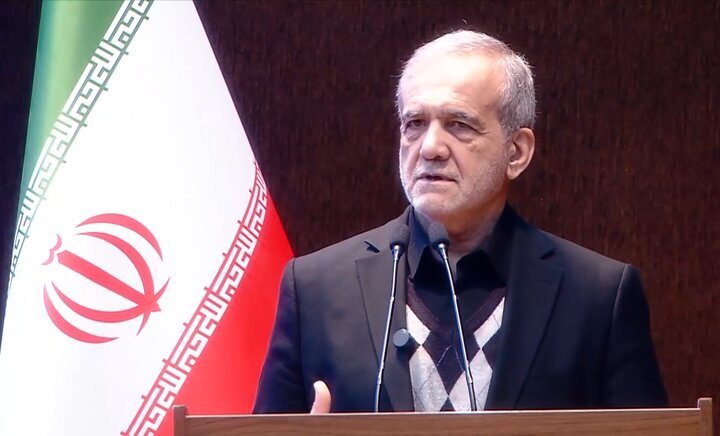Iran marks National Women’s Day with calls for unity, empowerment

TEHRAN – On National Women’s Day, Iranian officials highlighted the critical role of women in shaping the country’s progress and called for unwavering protection of human rights.
President Masoud Pezeshkian, along with other key figures, reaffirmed their commitment to gender equality, justice, and the empowerment of women, both in domestic policy and international diplomacy.
Speaking on Sunday, Iranian President Masoud Pezeshkian stated that violations of human rights, no matter who commits them or their position, must be addressed through dialogue, legal action, or other appropriate measures.
In his address, President Pezeshkian reflected on societal norms during the time of Prophet Muhammad, when the birth of daughters was often viewed as shameful.
He highlighted the transformative significance of Lady Fatimah Zahra’s birth, calling her a beacon of dignity and progress in Islamic history. He quoted the Quran extensively to underscore the importance of justice, equity, and the defense of human rights, stressing that these principles are universal and foundational.
“Prophets came to ensure the recognition and respect for human rights,” the President stated. He noted that the Quran encourages righteousness and justice for all, regardless of gender or ethnicity, and promised divine reward for anyone who does good deeds.
President Pezeshkian emphasized the need for openness to truth and the courage to adapt to it. “If the younger generation speaks the truth, we must listen. If I am wrong, I must change to align with the truth,” he said. He condemned deceit and the denial of truth as roots of injustice, cautioning against ignoring evidence in favor of personal opinions, even in professional fields like medicine.
“Justice and truth must guide our actions,” he added, warning that disputes arise when people fail to respect others’ rights or demand more than their fair share. He cited the Quran, which teaches that justice brings people closer to piety.
Addressing the audience, Pezeshkian reaffirmed women’s equality, praising their potential to lead and excel. He called for creating more opportunities for women and girls to participate in the country’s development, emphasizing that their contributions are vital for a just society.
“Women are not only equal to men but often excel in many areas,” he said. “Superiority lies in piety, not in gender.” He highlighted the role of mothers in shaping future generations and stressed that no nation can thrive without the support of capable and dedicated women.
Reflecting on the unity displayed during the Iran-Iraq War, Pezeshkian lamented the shift in focus toward political divisions and superficial issues. He urged a return to prioritizing solutions for societal problems over ideological conflicts.
He pointed to recent efforts to promote inclusivity, including appointing a Sunni governor in Sistan-Baluchestan and an Arab governor in Khuzestan. “These steps show that everyone in this country matters, regardless of their background,” he said.
The President stressed the value of collaboration over individualism and the importance of cultural respect in fostering unity. “If we engage in meaningful dialogue and avoid conflict, even the most complex issues can be resolved,” he noted. He also emphasized that development requires respecting diverse perspectives and working collectively to solve societal challenges.
Concluding his speech, Pezeshkian called for greater inclusion of women in leadership roles and a renewed commitment to addressing the nation’s challenges. “Women have a unique ability to nurture and shape the next generation,” he said. “This must be recognized as a cornerstone of national progress.”
Also on Sunday, the Iranian Foreign Ministry celebrated National Women’s Day and Mother’s Day with a ceremony attended by female ministry employees.
Foreign Minister Abbas Araghchi emphasized the critical role of women in diplomacy, highlighting their contributions to advancing Iran's foreign policy objectives globally.
Meanwhile, Speaker of the Parliament Mohammad Bagher Ghalibaf met with members of the Women's and Family Fraction of the Iranian Parliament to discuss women's empowerment in honor of Lady Fatimah Zahra's birth anniversary.
Ghalibaf highlighted the qualitative and quantitative transformations achieved for women under the Islamic Revolution. He noted that adversaries are attempting to undermine the Islamic Republic by targeting women's issues, which he described as a strength of the revolution.
The Speaker pledged full support for women's initiatives, calling the Islamic Republic’s record on women’s rights strong compared to other nations.
Leave a Comment